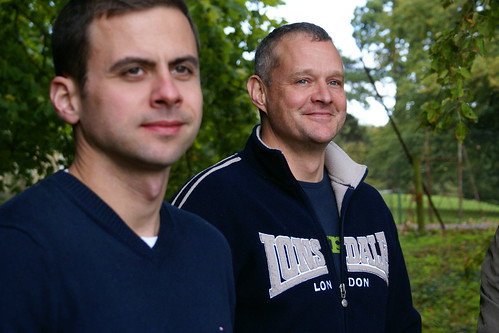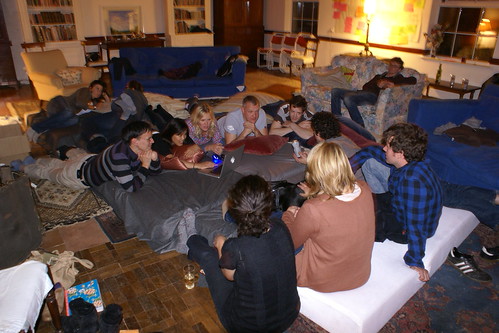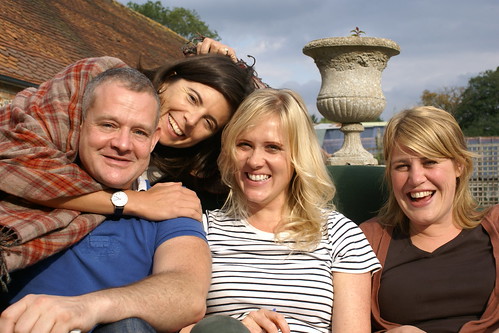Winter is approaching and it’s
looking like one of discontent. St. Paul’s cathedral has become home to a
couple hundred protesters freezing in colourful tents, railing against the global financial sector. It's the Occupy London movement.
On Tuesday night I attended the
general assembly outside St. Paul's. It was mostly to go through certain housekeeping
protocols, like why it’s a bad idea to piss in bottles and throw them into
public bins. Other items on the agenda were issues of security and maintaining
good relationships with the St Paul’s clergy. It’s calmed down a lot
since the first Saturday, when the cops were doing their tacky psychological
warfare techniques, whispering sweet nothings like “Sir, if you enter the
protest, you may not be able to leave again.” There’s a few cops left now, but
they’re mostly blending into the scenery.
I was impressed by the camp food
system that has sprung up, driven by kind donations, some from local chains
like Pret (which incidentally are making shedloads of cash from cold protesters
buying coffee from them). We even managed to get some sushi to go with our homemade
vegetable soup. I was slightly less impressed by the public talks that have
been occurring, a lot of (what I perceive to be) clichéd stuff about neoliberalism and bankers, and in general nothing particularly interesting or new. Indeed, it still seems to be much the same crowd that does all the protests. I suggested during the general assembly discussion group that much more needs
to be done to translate the message to a wider audience, lest it fizzle out
into a cliquey back-patting exercise.
 |
| KETTLE-FRIED LOVE |
Needless to say, when you put yourself out
there in a public forum (such as the Guardian), you get all sorts of ideologues that try
throw knives at you. It was fun defending my ideas, but the ad hominem attacks
are pretty disturbing at first. One suggested I wasn’t worthy of being in the
human race. A couple attacked my professional credentials. A few attacked my
grasp of socialist theory, under the somewhat presumptuous assumption that
having read the great Marxian works was a prerequisite to commenting
on activist techniques.
Such is the nature of public
commentary though, and, on the plus side, some great people have got hold of me
to discuss the ideas further. It's really rewarding to hear opinions on how the concept of financial activism could be refined, so please do read the article and post any comments on the Guardian site, or here. I'll be sure to respond.




